Watch the 10-minute preview of As Goes Janesville
Any of the blue-collar Midwestern towns gripped by the recent recession could have just as easily served as the subject of the new documentary As Goes Janesville. In 2009, when Brad Lichtenstein turned his camera on the Wisconsin city, General Motors, one of Janesville’s largest employers, had just closed its plant there, putting 4,500 people out of work. But neither the film’s director nor its coproducer, Chicago’s Kartemquin Films (Hoop Dreams, The Interrupters), was prepared for the explosive reaction to the short clip that appeared on YouTube in May showing the state’s governor, Scott Walker, disparaging unions. The resulting ruckus has stoked anticipation for the movie, which will be shown this fall on PBS as part of its Independent Lens Series.
A few months after the plant closed, Lichtenstein began documenting the struggles of five people: three workers who had lost their jobs, the leader of an economic development team committed to luring new business to the area, and the chairman of a task force trying to convince GM to stay. In a fascinating turn, that chairman, Tim Cullen, was elected to the state senate in 2010—soon after, the new Republican governor clashed with the state’s public workers over collective bargaining rights. Protests ensued, and several Democratic senators, including Cullen, fled to Illinois to try to force Walker to compromise. Lichtenstein followed.
In January 2011, Lichtenstein filmed Walker telling one of his donors that he planned to employ a “divide-and-conquer” strategy with unions. In the weeks leading up to June’s contentious recall election, a clip of that exchange went viral, generating hundreds of thousands of views across YouTube, The Huffington Post and ThinkProgress.org. Democrats used it to argue that Walker was only out to break unions. The governor’s supporters went after Lichtenstein, citing a $100 donation he had made to the governor’s Democratic rival in 2010 as evidence of a hidden agenda. “At the margins, there’s so much extremism, it can be a lot to handle,” Lichtenstein says.
While the film does not cast Walker in the most favorable light, Lichtenstein says he tried not to pick sides. “I happened to be holding a camera when a very revealing conversation happened,” he says. “I’m hoping people pay attention to all 85 minutes and the deeper story about the workers.” And, indeed, the most compelling moments are the ones in which the laid-off workers talk about their struggles to support their families.
The working-class angle appealed most to Kartemquin, which has begun a campaign to produce more Midwestern films. “We knew pretty early on that the project had some important footage concerning the situation in Wisconsin,” says Justine Nagan, Kartemquin’s executive director. With the PBS broadcast, the film is taking on more significance, she says. “It really gives us the opportunity to inform the discussion.”
* * *
GREAT CLIPS: As Goes Janesville's Timeline
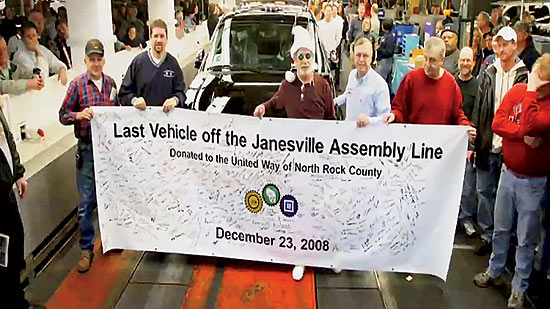
DECEMBER 2008: A Chevy Tahoe marks the end of a 90-year production history at the Janesville plant, at the time GM’s oldest in the country.
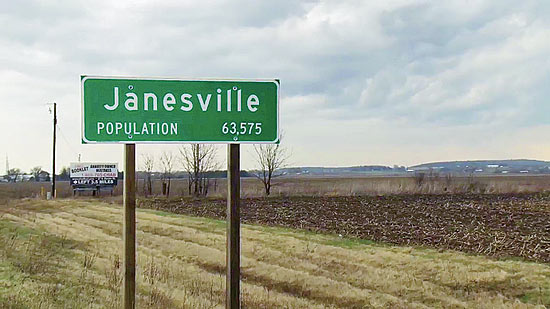
DECEMBER 2008: Unemployment in Janesville nearly doubles, from 6.2 percent in 2008 to 12.8 percent in 2009.
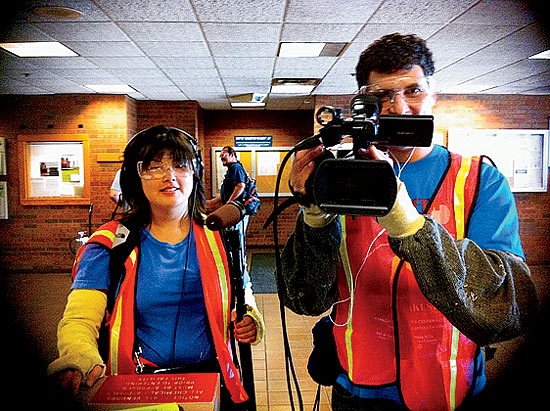
MARCH 2009: Milwaukee-based filmmaker Brad Lichtenstein picks up his camera to document the trouble in nearby Janesville.
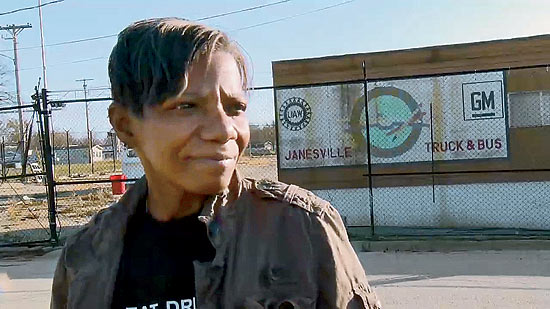
MARCH 2009: Lichtenstein finds Angie Hodges, a 23-year vet of GM who left her son and moved to Indiana to keep her job.
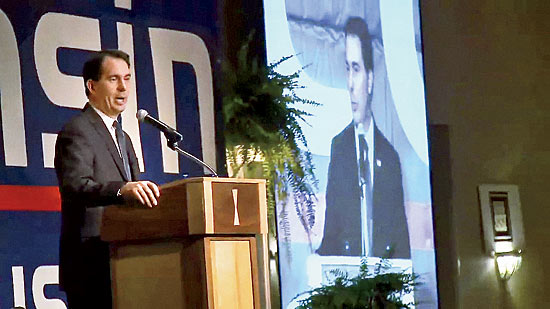
NOVEMBER 2010: Scott Walker wins the race for governor after promising to bring 250,000 new jobs to Wisconsin.
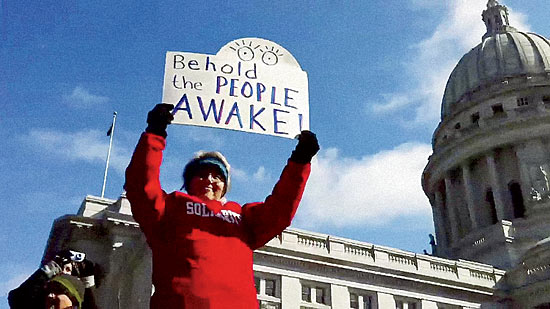
FEBRUARY 2011: Walker’s bill to effectively curtail union rights spurs massive protests and leads to the state’s first ever gubernatorial recall election.
Photography: (film stills) Courtesy of 371 Productions


